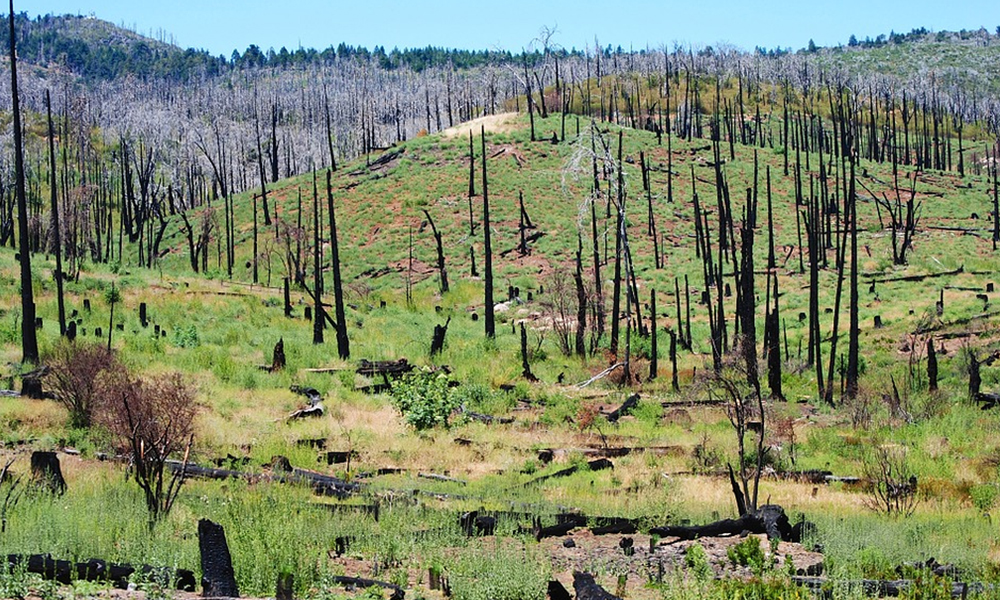
India
Understanding Planetary Health-Coronavirus Link: How Long Can The Earth Sustain Human Greed?
 |
|Richard Horton, editor-in-chief of 'The Lancet', who coined the term 'planetary health' in March 2014 asserts that "The harms we continue to inflict on our planetary systems are a threat to our very existence as a species."
A number of renowned biologists and scholars are taking a keen interest in a relatively new discipline of science - planetary heath. According to UNFCCC, planetary health is a subject that recognises the importance of preserving environmental resources in the interest of human and community health. Richard Horton, editor-in-chief of The Lancet, is credited with coining the term 'planetary health' in a March 2014 article titled "From Public to Planetary Health: A Manifesto" – where he asserted that "The harms we continue to inflict on our planetary systems are a threat to our very existence as a species."
Investigating possible reasons behind the spread of the novel coronavirus disease (COVID-19) has spurred interest in the subject of planetary health. Increasingly, pathogens (zoonotic viruses and their ilk) are jumping from the animal to the human system. This has been seen in the case of SARS, Lyme disease, MERS, EBOLA and Nipah. Degradation of the natural systems due to indiscriminate anthropogenic activities has widely been held responsible. Scientists have cautioned, this is not the last pandemic we are witnessing. The question is, will we be better prepared drawing lessons from COVID-19 for the next pandemic?
Unfettered trade and commercial activities by businesses and mega infrastructure projects have often resulted in irreversible damages to the environment and natural systems. Key regulatory functions have been weakened to enable 'ease of doing business' reforms. Instead of imposing strict conditions on such activities, there has been an effort to relax them and hasten clearances. Climate variation, loss of biodiversity and habitat were earlier considered to be the most concerning adverse impacts of these activities. However, COVID19 has highlighted a significant gap in our understanding of the impacts of indiscriminate anthropogenic activities on human and community wellbeing.
As Yuval Noah Harari wrote in his recent Financial Times article, "This storm will pass". However, the lessons we derive from COVID-19 today will help us not only in preparing societies and governments to better deal with such a pandemic or even more localised outbreaks – but also how business, economic activities and infrastructural development are designed and implemented.
Exactly the months ago, a stark change was noticeable in the agenda and mood of the rich and famous business leaders when they gathered at Davos, Switzerland for their annual get together in January 2020. This was reflected in the Davos2020 manifesto – which underlined the need to include a new measure of 'shared value creation' for businesses to pursue 'environmental, social, and governance' (ESG) goals complementing standard financial metrics.
For those going to Davos over the years, this was rather outlandish. The focus in Davos had shifted from shareholders to stakeholders – and businesses were highlighting the importance of transparency and accountability not only in their own operations but down the supply/value chains – which remain complex, fragmented and vulnerable to shocks.
Trade, commerce and infrastructure projects keep an economy and indeed society going. These activities not only turn the wheels of the economy and expand industrial growth but also offer jobs/opportunities to ensure people have money to buy goods and obtain services they need. Gradually, trade and commercial activities will pick up pace post COVID19. There will be a compulsion to play the catch-up game and make up for losses and lost grounds.
Businesses and governments will have to choose from among two options – firstly, one that promotes balanced and calibrated economic activities and secondly, one that involves going full throttle. The choices we make will not only shape the economy and society now – but will have long-term implications for the future. This realization is aligned with the doctrine of 'shared value creation' - a feature of 'businesses with purpose' promoted in Davos earlier this year.
UN Secretary-General in a recent report titled – 'Shared Responsibility, Global Solidarity' has observed how COVID19 offers an opportunity for businesses, governments and indeed individuals to reflect how - "With the right actions, the COVID-19 pandemic can mark the rebirth of society as we know it today to one where we protect present and future generations".
This is indeed an opportunity for businesses to go back to the drawing board and recalibrate their strategies, structures, processes and how they engage people and technologies. Businesses worldwide have been affected and hence will have to invest in systems to ensure they are better prepared, adaptive and agile. Efforts would have to be made in mapping risks and identifying the vulnerable components of supply/value chains – both in terms of people and natural resources.
Governments too have realized the need to boost public investments in social infrastructure and creating safety nets for the most vulnerable – so that economic activities don't affect people and the environment irreversibly. It is also a time to enable cooperation and show solidarity across governments – so that countries, businesses and societies can learn from each other.
Finally, as consumers each one of us should draw lessons from the current situation and read this as a 'wake-up call', to change our behaviour – especially in terms of our demand for material, commodities, energy, technology and so on. As people, societies, government and businesses we have to improve our understanding of impacts of indiscriminate anthropogenic activities on human and community wellbeing. This will help us be better prepared. It is a wake-up call we can't afford to ignore.
Also Read: COVID-19 Lockdown: Environment Takes Backstage As Centre's Focus Shifts To Ease Of Businesses